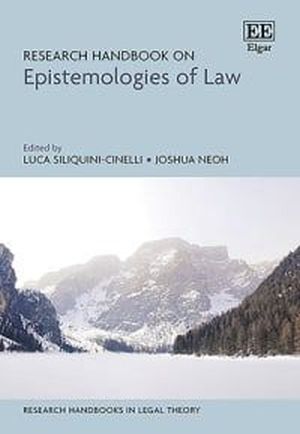
This Research Handbook explores recent developments in legal education and practice. It covers the increasing reliance on technology to teach law and perform legal tasks, including a surge in the use of artificial intelligence (AI), alongside changing definitions of what it means to attain, retain, and use legal knowledge.
Filling an important gap in the literature on the topic, expert authors shed light on the uncertain future which awaits law schools and the legal profession, and reconsider the nature, operational dynamics, and remit of the type of knowledge required in the field. Featuring original contributions on key topics, the Handbook provides insights into research methods in law and legal knowledge in theory and practice through philosophical and sociological perspectives. Chapters present theoretical, practical, sociological, comparative, critical, and law and technology approaches and examine analytic jurisprudence to address law reform and legal knowledge of the future.
The Research Handbook on Epistemologies of Law is an essential resource for scholars and students of legal philosophy and legal theory. Additionally, practitioners in legal education will also be interested in its study of the ways in which legal knowledge is produced and transmitted in the age of AI.